Foreigner voting rights: broad variety of opinions
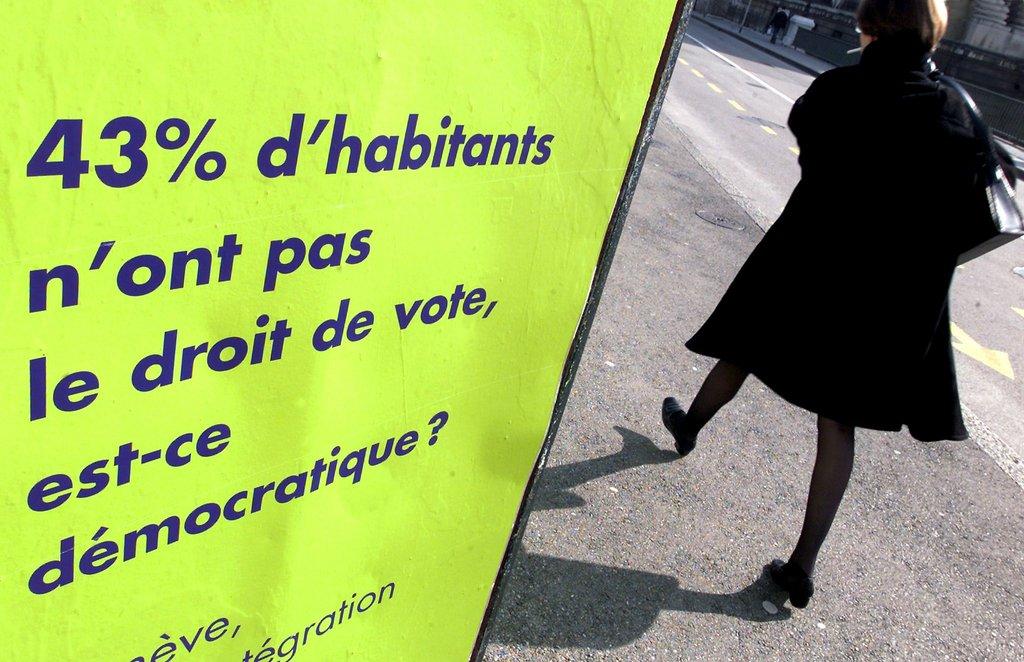
What do swissinfo.ch readers make of the idea of granting foreigners in Switzerland the right to take part in votes and elections? The more than 200 answers to our question cover a broad range. We tried to sort them in different categories.
Considering the bare figures, it’s not particularly astonishing that easing the voting rights for foreigners is a recurring topic in Swiss politics. About 25% of the residents in Switzerland have a foreign passport. In Geneva it is even 40% and in Basel City 36%.
But the non-Swiss have very limited possibilities to express their opinions at the ballot box – an obvious flaw in the Swiss-style democracy as international comparisons have criticised.
At a national level, foreigners in Switzerland have no say at all. But things are slightly better – and more complex – at the level of the 26 cantons, which enjoy wide-ranging political autonomy.
In Neuchâtel and Jura, foreigners can take part in votes and elections at the cantonal level. However, non-Swiss can’t be elected to a cantonal parliament anywhere in Switzerland.
There are more opportunities at a local level. Foreigners can take part in votes and elections in their municipalities if they happen to live in cantons Geneva, Vaud, Neuchâtel, Basel City, Fribourg, Jura, Graubünden and Appenzell Outer Rhodes.
Almost the same goes for the eligibility of foreigners in the above-mentioned cantons, with the exception of Geneva.
The local authorities in Zurich – Switzerland’s biggest city – are considering ways of boosting the political involvement of the expatriate community. They make about a third of the total of the 423,000 local residents.
Late last year, swissinfo.ch took the opportunity to launch a poll among its readers, including those using Facebook and Twitter, to find out more about what people think of the idea of foreign voting rights.
We summarised the more than 200 answers in 11 categories:
This was a common response and many commentators added that people who wish to participate in politics should apply for a Swiss passport. This opinion was shared by some of the respondents who acquired Swiss citizenship.
This opinion was shared notably by swissinfo.ch journalists living in the French-speaking part of the country.
Language skills and the time spent as resident of Switzerland were mentioned notably in comments on the French website and by users of the Spanish-languageExternal link Facebook site of swissinfo.ch.
A respondent on the Arabic-languageExternal link Facebook site suggests that foreigners pass a knowledge test before they are allowed to vote and elect.
This opinion was expressed in comments on the Spanish-language Facebook site of swissinfo.ch and was also mentioned in e-mails sent to us.
This comment was made on the English-languageExternal link Facebook site of swissinfo.ch
This proposal was mentioned in several posts on the English and German-languageExternal link Facebook sites.
This has been the case for foreigners mainly living in western, French-speaking regions of Switzerland but also in some cantons in eastern Switzerland. The same principle applies in all European Union member countries. But Switzerland is not part of the 28-nation bloc.
The proposals were made on swissinfo’ ch’s Twitter account and on the Facebook sites in English and Spanish.
En el cantón de Neuchâtel es una realidad desde hace muchos años. Yo ya votaba en la ciudad en el 1998. Y bueno para las federales hace falta ser ciudadano. Me parece justo.
— Claudio Ombrella (@ClaudioOmbrella) 16. November 2018External link
Rural municipalities in rural Switzerland have increasing problems to find volunteers to sit in local governments. Granting them the so-called passive voting right without having Swiss citizenship might be a way of tackling the problem successfully.
This suggestion can be found on swissinfo.ch’s Facebook site in Arabic.
The proposal published on the Arab language Facebook site of swissinfo.ch appears logical. But it is much trickier to implement it as foreigners living in Switzerland are affected by most political decisions in one way or another.
A recent study has confirmed that naturalisation accelerates political integration. Therefore, no objections to the Tweet published on the Arabic site. Others however argue that voting rights should be the high point of integration (citizenship).
انا مع حق تصويت للاجانب اعتقد انه يسرع الاندماج ويشعر المهاجر بان سويسرا بلده لبديل
— jamel (@jamel52208006) 19. November 2018External link
This point was made in comments on the Facebook site of swissinfo.ch in English.
A participant in our discussion on foreigner voting rights put a link to a Wikipedia pageExternal link listing all the countries in the world which have introduced foreigner voting rights of some form.
There are a host of different approaches to engage an expat community in a country as the compilation shows. But it is also clear that the issue will not disappear from the political agenda any time soon.
Adapted from German/urs

In compliance with the JTI standards
More: SWI swissinfo.ch certified by the Journalism Trust Initiative
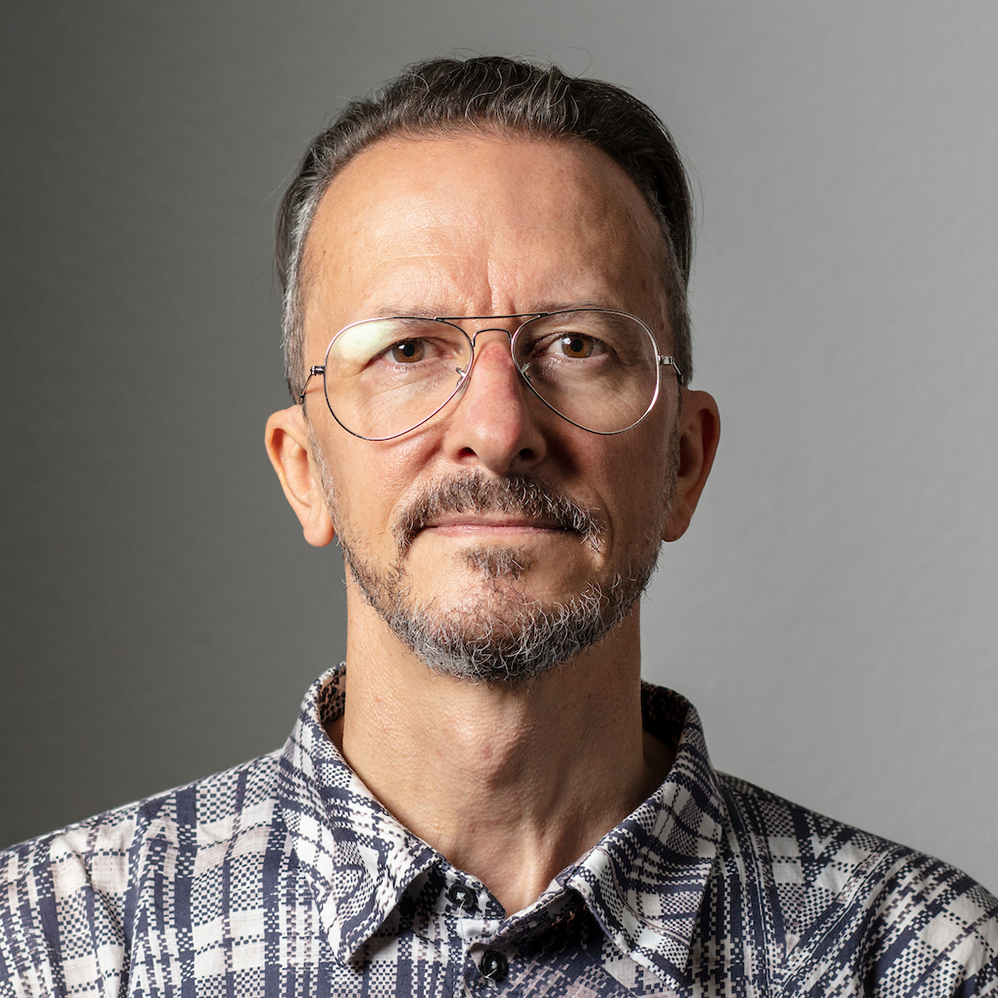









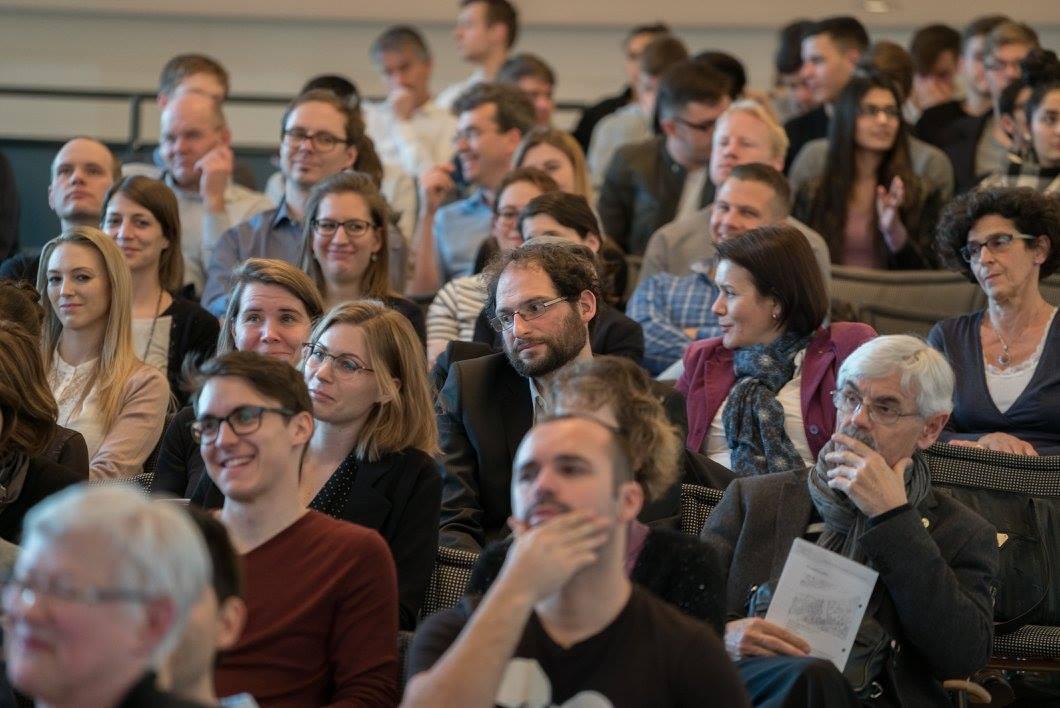
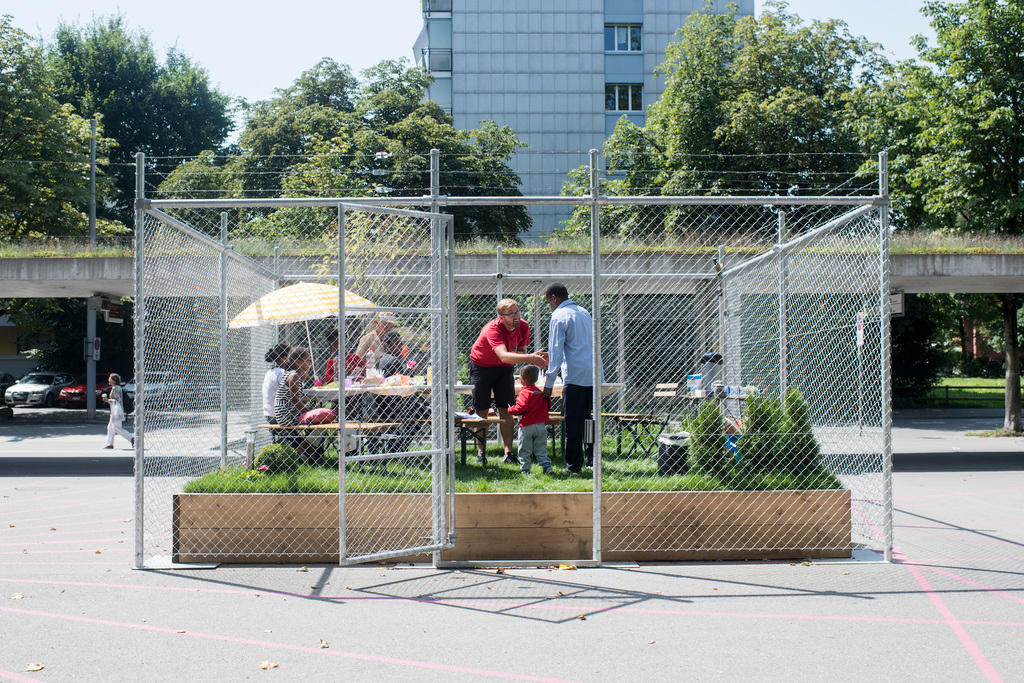

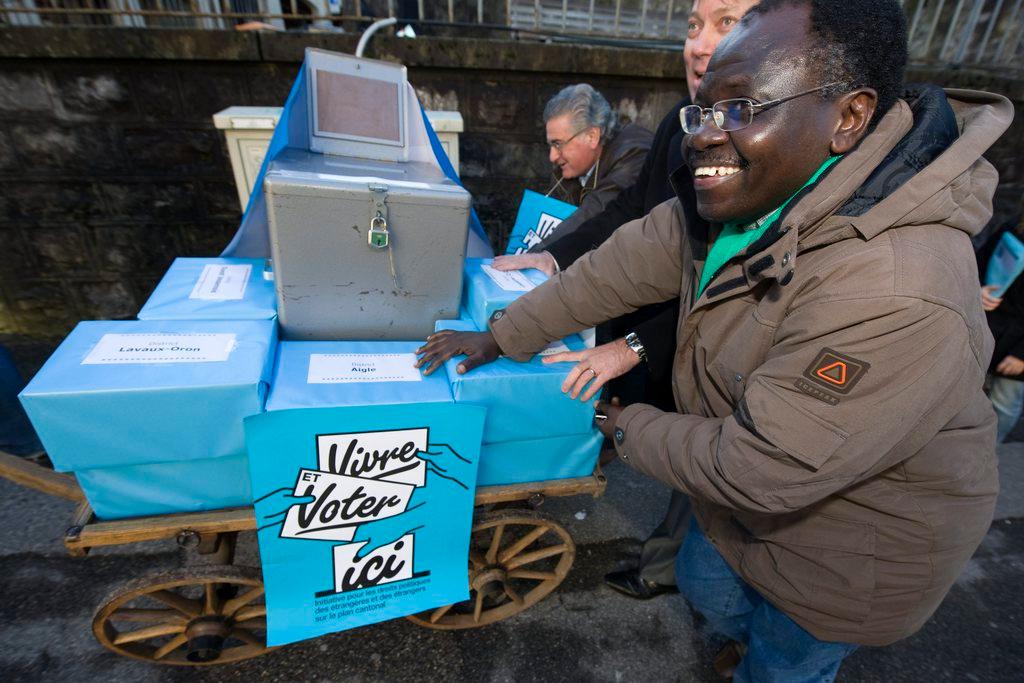
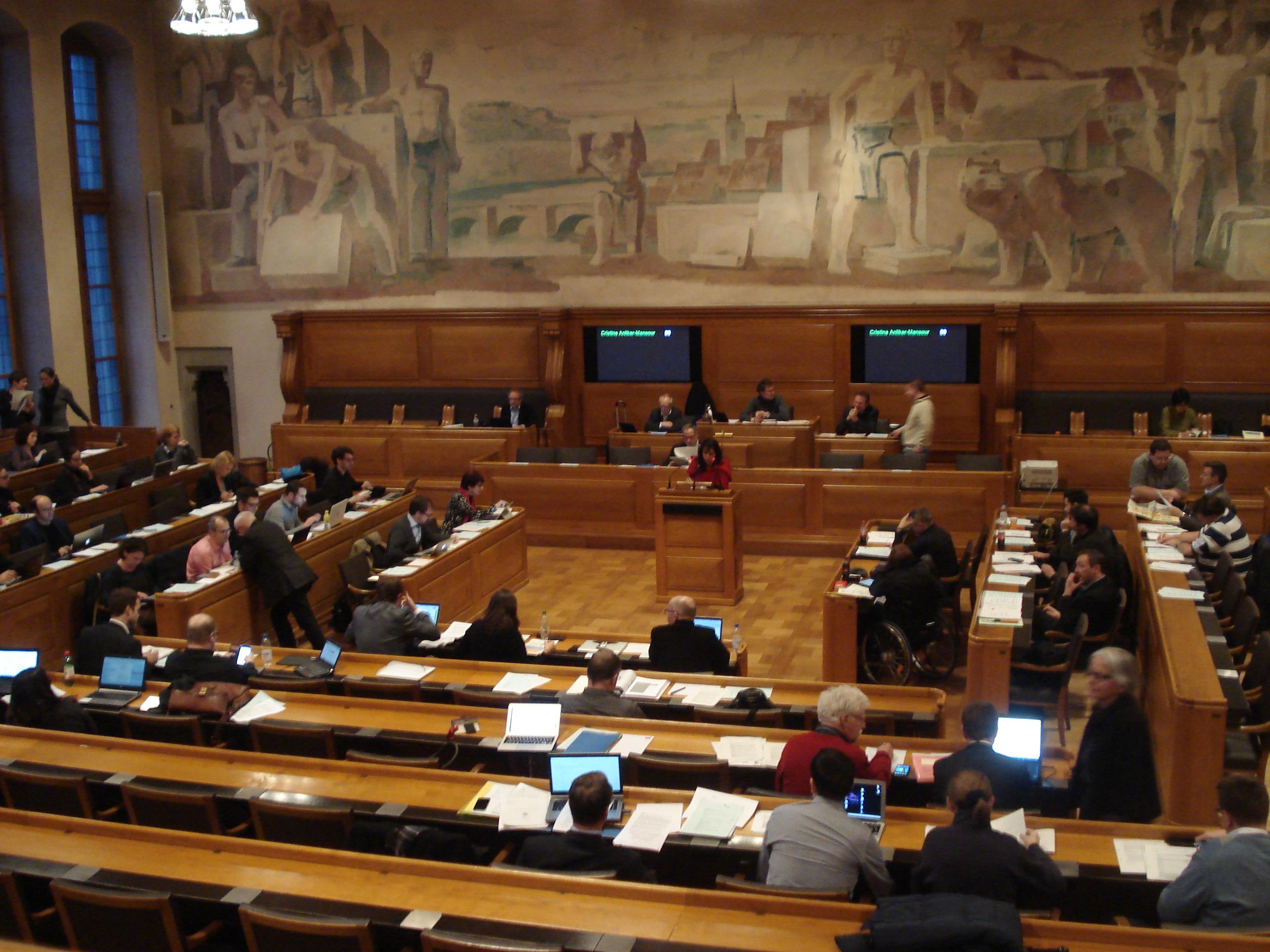

You can find an overview of ongoing debates with our journalists here . Please join us!
If you want to start a conversation about a topic raised in this article or want to report factual errors, email us at english@swissinfo.ch.